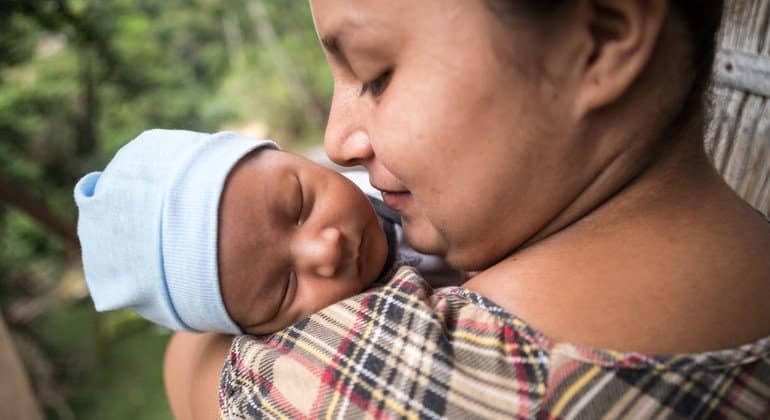Here’s the translation into American English:
—
The decline in global birth rates does not reflect a rejection of motherhood or fatherhood, but rather highlights a deep crisis linked to the inability to form desired families. This is revealed in the latest report from the United Nations Population Fund, presented a few days ago in collaboration with YouGov, which surveyed 14 countries, representing more than one-third of the global population. This study emphasizes that one in five people faces the inability to have the number of children they truly desire.
The difficulties stem from the high cost of living, job insecurity, lack of adequate housing, absence of a stable partner, and uncertainty about the future. These issues are particularly relevant in Latin America, where millions confront these challenges daily. In countries such as Mexico, Brazil, Colombia, and Argentina, fertility rates have fallen below replacement level. While this was traditionally attributed to a “cultural shift,” the report suggests that the true causes lie in the lack of adequate conditions for raising children.
Natalia Kanem, Executive Director of UNFPA, emphasizes that “the numbers show that large sectors of the population want to start families but cannot.” More than 50% of respondents identified economic reasons as the primary obstacle to having children. Additionally, one in five admitted to feeling social pressure to procreate even if they did not want to. One-third of surveyed adults have experienced an unintended pregnancy, and 11% mentioned the unequal burden of caregiving as an influential factor in their decision not to expand their families. Among those over 50, 40% expressed regret over not being able to have the number of children they desired.
The testimony of a 29-year-old woman from Mexico City illustrates this problem: “I want to have children, but it’s becoming harder and harder. It’s impossible to find affordable rent.” A 30-year-old man from Paraguay also shared his concerns, noting that the real challenge is not just having a child, but raising them in a suitable environment.
In Latin America, job insecurity and economic informality restrict young people’s reproductive choices, while gender norms continue to place the burden of childcare on women. This has forced many to choose between their professional careers and motherhood. Furthermore, labor and cultural practices often penalize motherhood, resulting in reduced income and job opportunities for those who choose to become mothers.
The report emphasizes the need to change this work culture that pushes women out of the market and penalizes men for getting involved in childcare. Although there are maternity leave policies in countries like Argentina and Chile, access to adequate and paid paternity leave remains limited, and the lack of affordable childcare services inhibits many women from re-entering the formal workforce.
In light of this situation, UNFPA proposes not coercive measures like “baby bonuses,” but public policies focused on gender equity and reproductive rights. This includes paid parental leave, universal access to sexual and reproductive health services, investment in affordable housing, and the inclusion of LGBTQI+ individuals in maternity or paternity support programs.
Latin America stands at a crossroads, with aging populations and young people unable to fulfill their desires to form families. Governments must act with comprehensive policies that promote reproductive freedom, ensuring that everyone has the ability to decide how many children to have and under what conditions.
—
Is there anything else you need?
Source: MiMub in Spanish











